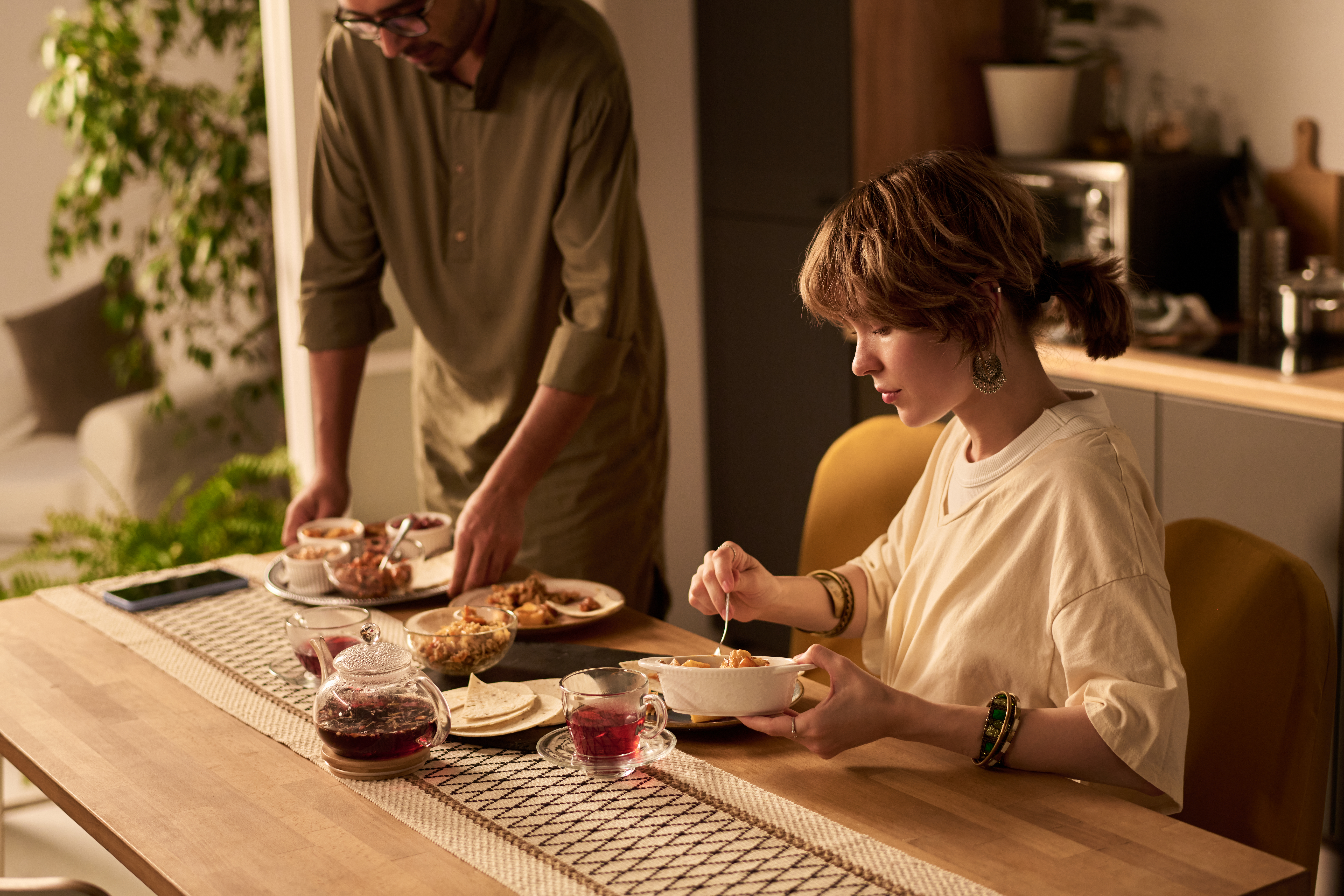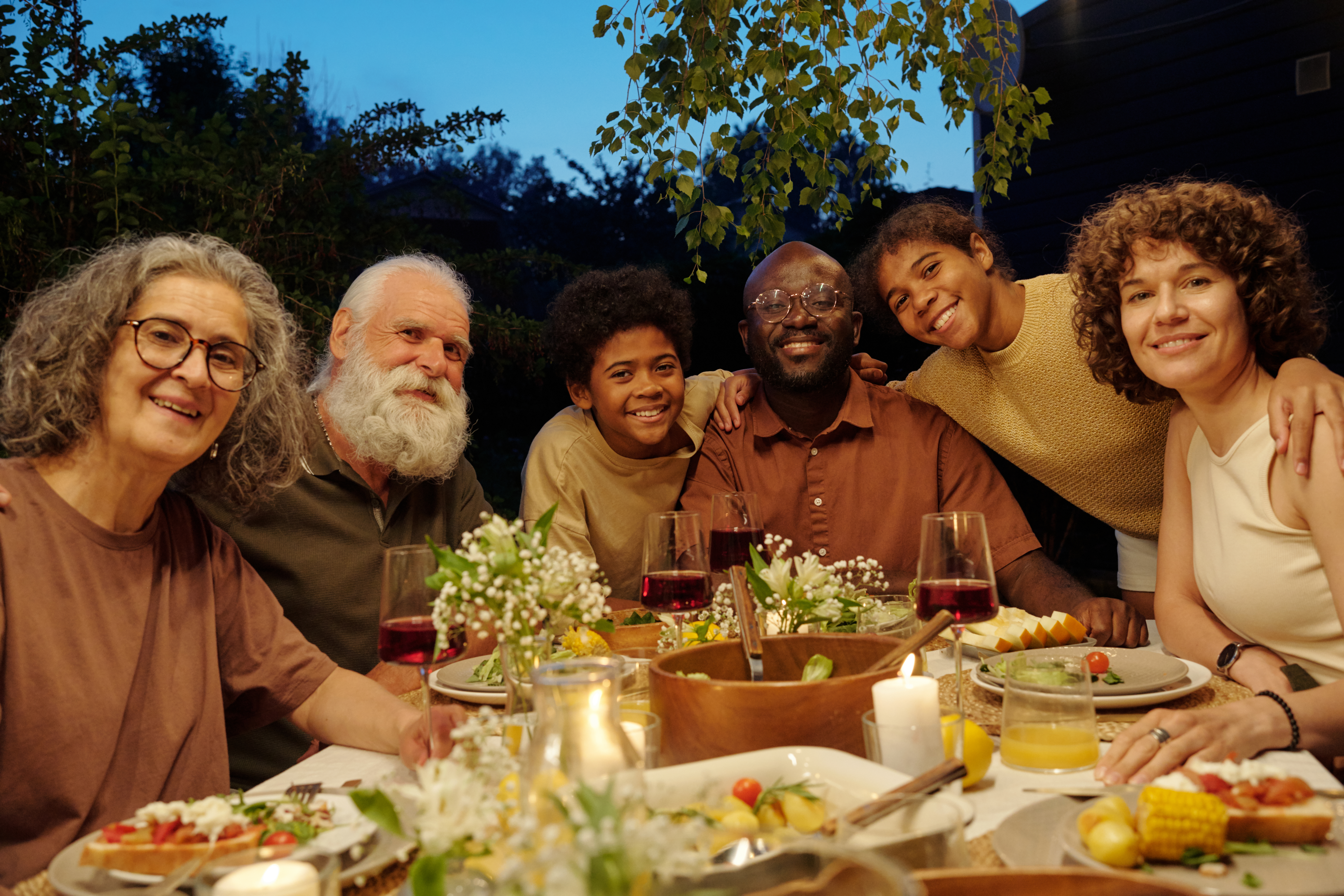
Young woman meditating peacefully under a large tree by the lake in the morning sunlight, practicing mindfulness and connection with nature outdoors
Breaking the Cycle: Emotional Clarity as Your Gateway to Freedom from Food Guilt
You’ve tried every diet, yet food guilt still haunts you like a shadow. Imagine breaking free from that cycle, finding peace with every bite. Emotional clarity holds the key to this liberation, offering a path to self-love and understanding. Let’s explore how you can transform your relationship with food and embrace a life without guilt. Ready to step into a world where food no longer controls you? Discover how emotional clarity can be your gateway to freedom. For more insights, check out this resource here. 🍏
Understanding Emotional Clarity

To break free from food guilt, understanding emotional clarity is crucial. Emotional clarity involves recognizing and understanding your emotions and how they influence your actions and decisions. This understanding helps in uncovering why certain foods trigger guilt and how emotional eating patterns form. Gaining emotional clarity can illuminate the path to self-love and acceptance.
Identifying Emotional Triggers
Identifying emotional triggers is the first step toward emotional clarity. Emotional triggers are specific situations or feelings that ignite intense emotional responses. Recognizing these triggers requires self-reflection and honesty.
Consider keeping a journal to document moments when you feel compelled to eat emotionally. Note the emotions present and any preceding events. This habit can highlight patterns, linking particular feelings or events to your eating habits.
By identifying these patterns, you gain insight into hidden emotional needs. This understanding helps you distinguish between physical hunger and emotional cravings. With this clarity, you are better equipped to address underlying emotions without resorting to food. For more on emotional triggers and their connection to eating habits, visit HelpGuide. 📓
Building Self-Awareness
Building self-awareness is vital in achieving emotional clarity. It involves a conscious understanding of your emotions, thoughts, and behaviors. Self-awareness allows you to observe your emotional state without judgment.
Practice mindfulness to enhance self-awareness. This can be done through meditation or simply taking a moment to breathe deeply and assess your feelings. Ask yourself, “What am I feeling right now?” and “Why am I feeling this way?”
Engaging in these reflective practices regularly can lead to greater emotional insight. This understanding helps you respond to emotional triggers more effectively. It empowers you to make mindful choices about eating rather than reacting impulsively. For more techniques on self-awareness, Mayo Clinic offers additional resources. 🧘
Breaking Free from Food Guilt

To find freedom from food guilt, it’s essential to address emotional eating patterns. Emotional eating often results in feelings of guilt and shame, creating a cycle that’s hard to break. By understanding and tackling these behaviors, you can cultivate self-love and a healthier relationship with food.
Overcoming Emotional Eating
Overcoming emotional eating starts with acknowledging the role emotions play in your eating habits. Emotional eating is using food to cope with emotions rather than satisfy hunger. Recognizing this pattern is the first step toward change.
Identify emotional triggers: As discussed, pinpoint situations that lead to emotional eating.
Develop alternative coping strategies: Find activities that address emotions without involving food, such as exercising or talking to a friend.
Practice mindful eating: Focus on the taste, texture, and aroma of food, and eat slowly to savor each bite.
These steps can help you manage emotional eating more effectively, reducing food guilt. For more strategies, visit Body by Bariatrics. 🍽️
Cultivating Self-Love
Cultivating self-love is essential in breaking free from food guilt. Self-love involves treating yourself with kindness and compassion, especially when you recognize emotional eating patterns.
Start by forgiving yourself for past eating habits. Understand that these behaviors were attempts to cope. Replace negative self-talk with affirmations like “I am worthy of love and care.”
Engage in activities that promote self-care, such as reading, taking a bath, or practicing gratitude. These practices reinforce your self-worth and reduce the compulsion to find solace in food.
Embracing self-love creates a positive foundation for emotional healing. It empowers you to make healthier choices for your body and mind. For resources on self-love, the National Eating Disorders Association provides helpful guidance. 💖
Pathway to Food Freedom

Achieving food freedom requires mindset reprogramming and emotional healing. By shifting your mental approach and healing emotional wounds, you can break the cycle of food guilt and embrace a healthier relationship with food.
Mindset Reprogramming Techniques
Mindset reprogramming involves changing your thought patterns related to food and self-image. This shift is crucial in breaking free from emotional eating and food guilt.
Challenge negative beliefs: Identify and question beliefs that contribute to food guilt, such as “I don’t deserve to eat this.”
Replace with positive affirmations: Use statements like “I deserve nourishment and satisfaction” to create a healthier mindset.
Visualize success: Imagine yourself free from food guilt, making mindful choices.
These techniques can rewire your brain to approach food and emotions differently. With consistent practice, mindset reprogramming can lead to lasting change. For more on mindset strategies, explore the HYL360: Emotional Freedom Program. 💡
Embracing Emotional Healing
Embracing emotional healing is a journey toward understanding and processing past emotional wounds. Emotional healing allows you to address the root causes of emotional eating.
Begin by acknowledging past experiences that may have contributed to your relationship with food. This acknowledgment can be challenging, but it’s necessary for healing. Seek support from friends, family, or a professional counselor if needed.
Practice self-compassion throughout this process. Remember, healing takes time, and patience is key. As you heal emotionally, you’ll find that food loses its power over your emotions. This progress leads to greater food freedom and self-acceptance. For additional support, consider the resources offered by VK Circle’s HYL360 Program. 🕊️
Ready to break free from food guilt and embrace self-love? The HYL360: Emotional Freedom Program offers a transformative 90-day journey toward food freedom and self-acceptance. 🌟



